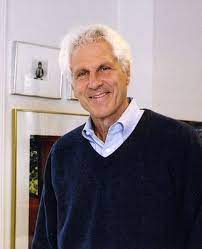Thanks for all the kind wishes, the soups, the meals, and the cards after last week’s blog. (It’s amazing how nice it is to get cards via snail mail.)
I’d like to lighten it up this week. I’d like to. But.
Beth’s mom Flo was famously resilient. Her husband died when he was only 47, leaving her with what I’ve calculated to be 115,000 children to raise. She, without a high school education, had to figure it out.
She did, and lived to 98. In her later years, which constitute an entire lifetime for some people, we marveled at not only how she got there, but how she weathered losing one loved one after another. And how she did that knowing that it wouldn’t get better.
So I’m wrestling with trying to get some what she had. On the other hand, I don’t think it’s the same for everyone.
When my father died in 1991, it was like getting hit by a truck. It was my first significant loss, and as such, in a way it remains my most significant loss. I draw on that experience again and again.
But I and my contemporaries are at a stage where it’s different now. Because, while the emotional well doesn’t dry up, I simply don’t have the resilience or stamina I used to. Every time someone we love dies now, I cannot endure what I felt when my father died.

It was my great pleasure to know Robert Krughoff.
I don’t think there’s a formula for this, I just know I need a way of processing it. I’ve thought about this a lot over the past year. And about mortality in general, but it came to a kind of cathartic head yesterday when I learned that a former boss, mentor, role model and finally, friend, died yesterday at home in hospice care.
I’ve written about Robert Krughoff here at the blog before, a brilliant, dogged, demanding, tough, and compassionate man. Much of what I’ve managed to do right in my life—professionally and personally—is owed to the time I spent under his tutelage.
If I got called into his office to discuss a research project or a draft article, I’d best be prepared. He’d think out loud, with a very distinctive stammer that was halting and could make you impatient—instead it kept one hanging on what the next thought was, and how to respond. Those of us old enough remember the movie “The Paper Chase,” which followed a law student’s experience with a demanding instructor played by John Houseman. Those kinds of scenes played out in Robert’s office again and again.
It wasn’t always pleasant, but I’d do it again in a heartbeat.
That’s my selfish take on it. What he did for me and what I’ll miss. But the guy had an enormous impact, an impact that you’ve probably benefited from without knowing it. He fought to get the government to release data about health outcomes to help others make better informed choices about health care. He was way out front in this endeavor. You can look him up.
As just a hint of the gravity of his work, here’s an article he co-wrote with two other authors, one being former Secretary of State George Schultz:
More Transparency, Better Health Care
It’s hard to think that the linchpin of what was a seminal period of my life is gone. What I have left are some great memories, a sharpened sense of critical thinking, the ability to always see how my work can be better, and the ability to make the work of other people better.
More than all that, I have loving friendships that have endured and thrived for more than 40 years.
For all of this, I thank you Robert Krughoff.
You can read a take on Robert’s life and work here at The Washington Post.
Mike, sorry for your loss. Whether we know it or not, we all carry on in someone else’s footsteps. I have many mentors whose shoes will never fit my own feet. They are giants in my life, like Robert has been in yours. There’s nothing selfish about it when you give back more than you receive. And you do.
Hey there….just read this and I was out of town when last week’s got posted. I am at your disposal for shopping, swearing, drinking or baked goods. Thinking of you!
Thank you for telling us about Robert and his work. Health care price transparency is here — kind of. It’s hard to have transparency about such a complicated subject. I just ended up paying a bill for something Medicare didn’t cover. I was not able to find the price prior to being billed and then I thought the price was highway robbery. Live and learn.
I’m sorry for your loss of a friend.
Leave a Response